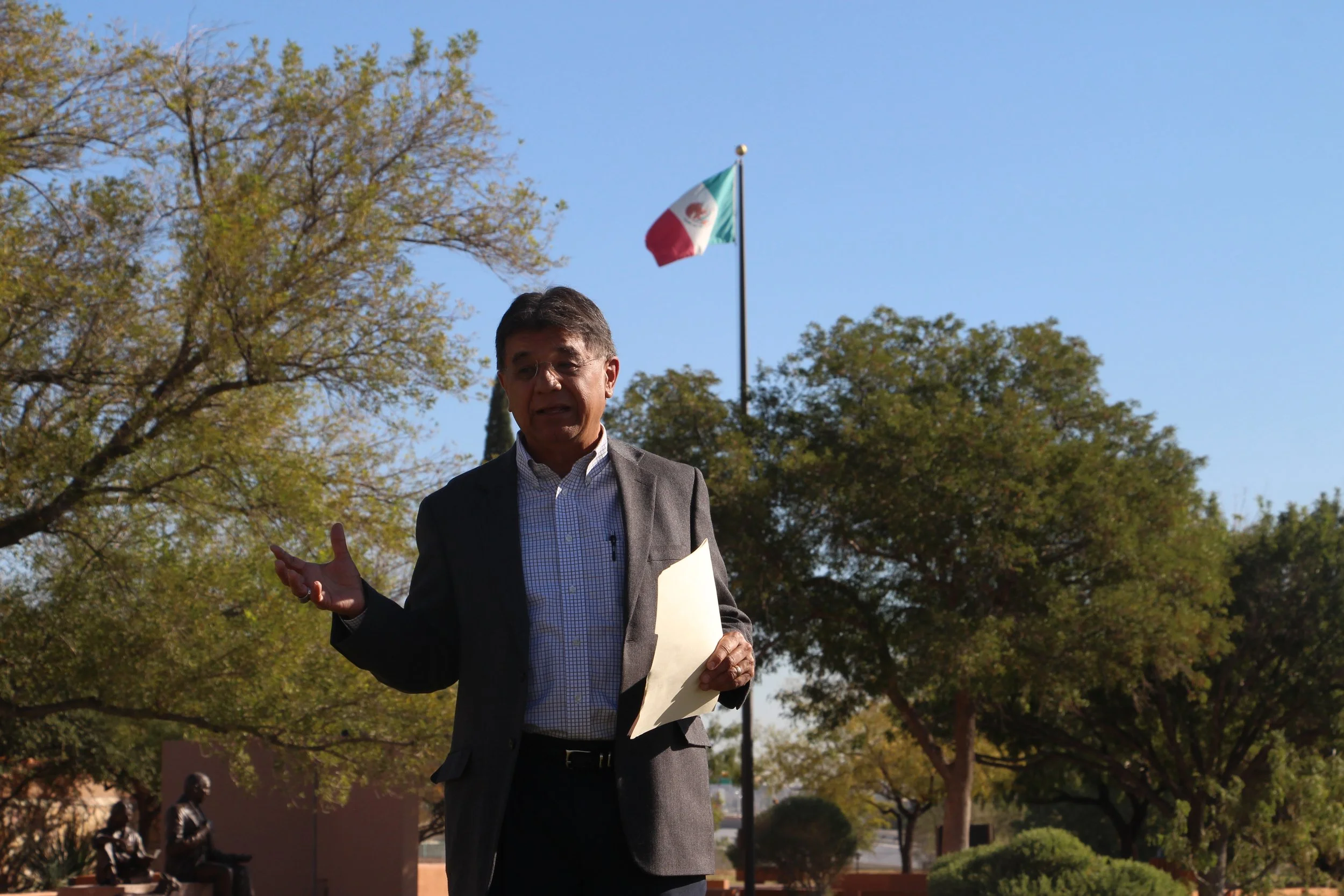Enrique perez
El Paso, TX
11/1/2022
Mr. Perez arrives in a suit, the first speaker of our semester to do so. He carries himself with a warm formality, evocative of a career working managerial positions in the Juarez factories coupled with a fatherly glow. With a nuanced grin, he launches into a brief overview of his life story.
His voice saunters through the sounds of the adjacent highway, a stone’s throw from the United States-Mexico border, occasionally drowned out by a passing semi. Despite our strategic positioning near the border wall, he seems to hardly notice its imposing presence. He has spent decades of his life commuting from El Paso to Juarez with every rising sun, returning home as it dips behind the mountains shadowing the two cities. The daily commute has entered the realm of monotony, for him, a mere bodily transportation not dissimilar to the commute of working folk around the country.
Mr. Perez spoke highly of his work in the Juarez factories, colloquially referred to as the Maquiladoras. A college educated Mexican American, he spent his career escalating the ranks of management positions, and is now comfortably retired. Although he represents a minority of workers with such notable success in the industry, his perspective contextualized the complexities of a divided society. The industrialization of border cities can often be seen as exploitative and damaging to local communities, but for many–including Mr. Perez–it is a lifeline of support and prosperity.
By Jonah Rosen-Bloom

